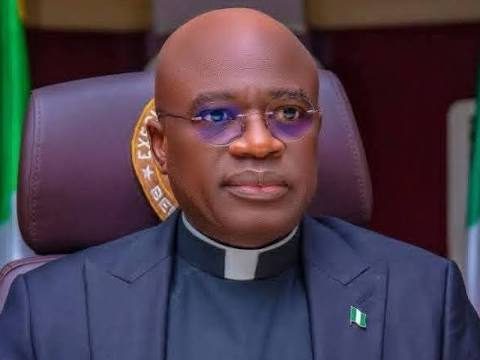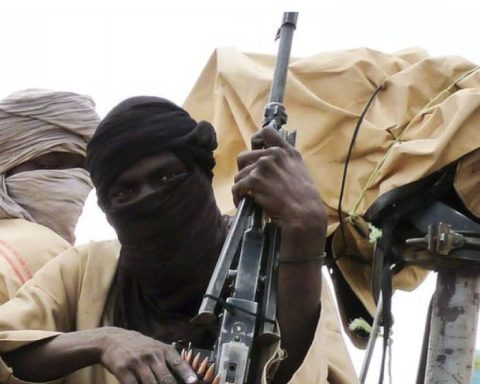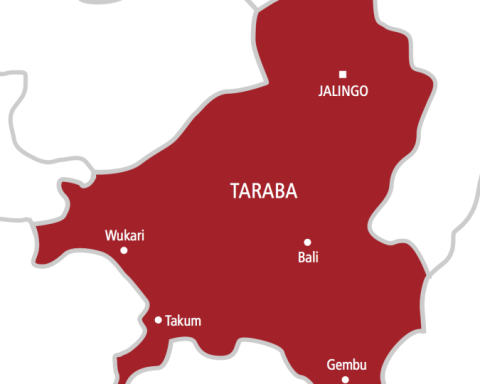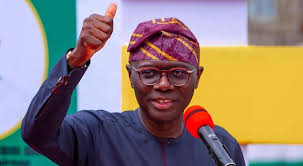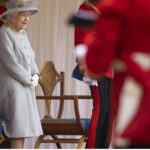The recent massacre in Benue State, which claimed over 200 lives in a brutal nighttime attack, has sparked widespread outrage and condemnation across Nigeria and beyond.
The attack, linked to the long-standing herder-farmer conflict in the region, has left deep scars and raised questions about the government’s response to the crisis.
Join our WhatsApp ChannelHuman rights groups like Amnesty International have condemned the “nearly daily violence” and called on the government to end the relentless killing.
Protests erupted in the state capital, Makurdi, with citizens demanding justice and accountability, criticising what they see as a muted federal response to one of the deadliest massacres in recent years. Social media has been flooded with calls for urgent government action, highlighting the perception of neglect and the failure to protect lives. The Catholic Pope also reacted.
As usual, President Bola Tinubu has described the violence as “inhuman and anti-progress” and ordered security forces to end the killings. However, the persistence of attacks underscores the need for a comprehensive strategy addressing root causes such as land disputes, ethnic tensions, and resource competition as well as the inhuman efforts of foreign interests to destabilise Nigerian communities for the sake of exploiting resources unchecked.
READ ALSO: Benue Killings: Ahmed Musa Condemns Govt Rhetoric, Calls For Decisive Action
The humanitarian toll is severe, with thousands displaced and agricultural productivity plummeting, further deepening food insecurity in a state known as Nigeria’s food basket.
Interestingly, the president, in his efforts, has also announced his visit to Benue on Wednesday, perhaps to confirm if the report is true. But who usually arms these terrorists with AK-47s? The government always mentions security when it knows the situation is beyond the current strategy of Nigerian security operatives. Just days ago, the country condemned the attack on Iran by Israel. It is not just about commenting. Can Nigeria ever use the kind of strategy employed by foreign security operatives to resolve this kind of crisis?
The Numbers Have Intensified
Since May 2023, Benue State has witnessed a horrifying surge in violence, with over 1,043 people killed between May 2023 and May 2025, according to security experts.
From February to May 2025 alone, over 150 fatalities were recorded in Guma, Logo, and Ukum LGAs, with a separate 25 May attack in Gwer West claiming at least 20 more lives. The violence escalated further this June 2025 with the horrific Yelewata and Daudu massacres in Guma LGA, where suspected herdsmen killed over 200 people, burning homes and overwhelming local security forces. This is in addition to incidents in other states like Enugu, Ebonyi, and Plateau.
Despite government promises and security operations, the violence continues unabated, underscoring the urgent need for comprehensive peacebuilding and protection efforts.
The Federal Government of Nigeria has been criticised for a selective response to security crises, focusing mainly on attacks linked to the opposition or politically sensitive areas, while seemingly downplaying or delaying action on the devastating killings in Benue State and the South East. Such a government’s response has been viewed as muted compared to its swift reactions to attacks involving the active party or politically charged power struggles ahead of the 2027 elections.
This is evidence that the government prioritises security responses based on political calculations, focusing resources and attention where it affects political rivals or power dynamics rather than addressing the root causes of violence in Nigeria comprehensively.
One widely held view is that President Tinubu’s cautious or muted response reflects a political calculation to avoid alienating influential northern power blocs. Maybe the president who hails from the Southwest may be navigating a complex political landscape where taking a strong stance could risk fracturing alliances critical for his administration’s stability and his political future, especially with the 2027 elections approaching. Of course, anyone who saw how the APC seized power would feel so.
Another perspective links the government’s silence to the broader geopolitical context. Nigeria’s vast natural resources have historically attracted foreign interests, and some narratives suggest that external powers, often labelled as colonial or neo-colonial actors, may have vested interests in destabilising Nigeria to maintain economic and strategic advantages. Whatever anyone thinks, this angle remains a deep-seated suspicion among many Nigerians about foreign interference in internal affairs.
Ultimately, Tinubu’s silence or selective engagement may be an attempt to balance national unity with political survival. Nigeria’s ethnic and regional diversity makes governance challenging, and presidents often tread carefully to avoid exacerbating divisions. This balancing act sometimes results in perceived inaction or silence on urgent issues, frustrating citizens who demand decisive leadership.
Silence Taken Too Far to the Doorsteps of Complicity
The brutal massacre in Benue State, where so many were lost in a single night, is not just a tragedy. So if allowed to continue, it means three days are enough to clear a state. It is a glaring indictment of a silence that has stretched too far, dangerously bordering on complicity. When a government, sworn to protect its citizens, responds to such carnage with muted statements and delayed actions, it risks becoming an accomplice to the violence.
This silence is not only deafening. It sends a message to perpetrators that their actions will go unpunished, that lives lost are mere statistics, and that justice is negotiable. Worse still, it deepens the wounds of a nation already fractured by distrust and fear.
Silence in the face of such atrocities is not neutrality. It is tacit approval. It emboldens armed groups and undermines the rule of law.
What is worse is that the government reacts when victims react: For example, after the horrific massacre in Yelewata and Daudu communities, the Inspector General of Police, Kayode Egbetokun, only visited the area and condemned the attacks following widespread outrage and protests by victims and civil society. He pledged increased security deployment, but this came after the bloodshed and public outcry. This further supports the claim that security agencies only come to inspect corpses and do not fight the terrorists.
As always in Nigeria, in Makurdi, peaceful protests demanding justice for the killings were met with tear gas and force by police, escalating tensions rather than calming the situation. Protesters under the Stop Benue Killings banner were dispersed violently despite calling for protection and government action. Others said the government began to comment on the issue only when it noticed the matter had reached international recognition. While others said the president used the term ” warring communities instead of genocide or massacre.
The government and media officially report the death toll from the recent Benue massacres as “at least 100,” but residents and eyewitnesses insist the number is far higher, 200 or more. This discrepancy raises serious questions. Why does the government consistently understate the death toll? Are they ashamed of their failure to protect citizens, or are they deliberately hiding the true scale to downplay the crisis?
Prince Aondona Isaka Ornguga, who lost 23 relatives, openly challenges official figures, accusing authorities of concealing the real numbers. So, if up to 23 people were affected in one family, how many houses and families, children, and mothers were affected? In short, the government and the media’s habit of hiding or downplaying death tolls while failing to prevent attacks deepens the tragedy.
Yet, killings remain the shame of the government, the media, and everyone helping the carnage through silence. This collective silence on the part of the government, media, and society amounts to complicity. To end this shameful chapter, all stakeholders must break their silence, demand accountability, and prioritise the protection of innocent lives.
President Bola Tinubu and his administration must recognise that leadership demands courage, the courage to speak out unequivocally, the resolve to protect all citizens without bias, and the commitment to root out the causes of violence. Anything less is a betrayal of the social contract and a step closer to complicity.
The time for silence has passed. The people of Benue, and indeed all Nigerians, deserve justice, security, and a government that stands firmly on the side of the innocent. To remain silent now is to stand on the wrong side of history.
Dr Mbamalu, Jefferson Journalism Fellow, member of the Nigerian Guild of Editors and Media Consultant, is the publisher of Prime Business Africa
Dr. Marcel Mbamalu is a distinguished communication scholar, journalist, and entrepreneur with three decades of experience in the media industry. He holds a Ph.D. in Mass Communication from the University of Nigeria, Nsukka, and serves as the publisher of Prime Business Africa, a renowned multimedia news platform catering to Nigeria and Africa's socio-economic needs.
Dr. Mbamalu's journalism career spans over two decades, during which he honed his skills at The Guardian Newspaper, rising to the position of senior editor. Notably, between 2018 and 2023, he collaborated with the World Health Organization (WHO) in Northeast Nigeria, training senior journalists on conflict reporting and health journalism.
Dr. Mbamalu's expertise has earned him international recognition. He was the sole African representative at the 2023 Jefferson Fellowship program, participating in a study tour of the United States and Asia (Japan and Hong Kong) on inclusion, income gaps, and migration issues.
In 2020, he was part of a global media team that covered the United States presidential election.
Dr. Mbamalu has attended prestigious media trainings, including the Bloomberg Financial Journalism Training and the Reuters/AfDB Training on "Effective Coverage of Infrastructural Development in Africa."
As a columnist for The Punch Newspaper, with insightful articles published in other prominent Nigerian dailies, including ThisDay, Leadership, The Sun, and The Guardian, Dr. Mbamalu regularly provides in-depth analysis on socio-political and economic issues.




